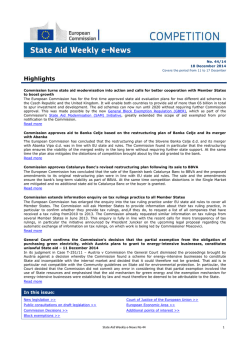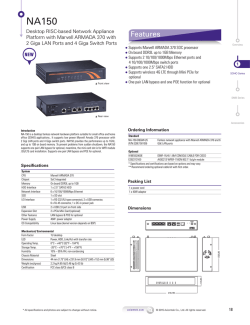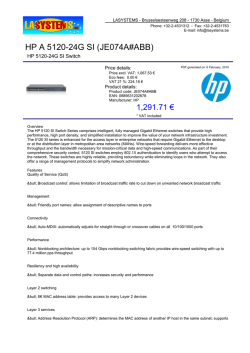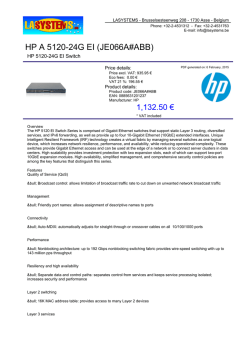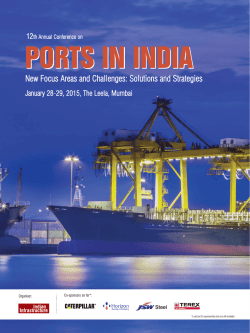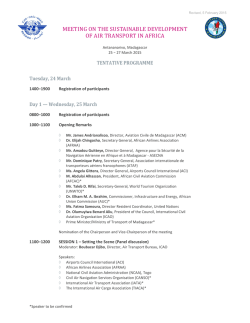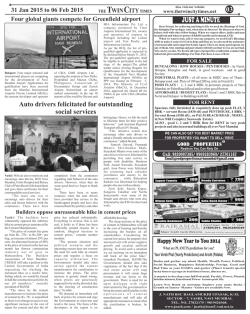
(GBER) to ports and airports
Extension of the General Block Exemption Regulation (GBER) to ports and airports
The Commission adopted a new General Block Exemption Regulation (GBER) in 2014 as an integral
building block of State Aid Modernisation ("SAM"). The GBER declares certain aid measures
compatible with the internal market and exempt from prior notification to the Commission. The
criteria of the GBER determine, in particular, eligible beneficiaries, maximum aid intensities (i.e. the
maximum proportion of the eligible costs of a project that can benefit from state aid) and eligible
expenses. These criteria are derived from the Commission's market experience and decision making
practice.
Extension of the GBER to ports and airports
In recital 1 of the GBER, it is announced that the Commission envisages including ports and airports
in the GBER, which have so far not been included, as soon as sufficient case experience has been
collected. This initiative aims to simplify the application of State aid rules, thus reducing
administrative burden and costs and speeding up the implementation of projects.
As already indicated in recital 1 of the GBER, the new provisions on ports and airports are necessarily
based on a codification of existing practice (33 cases on ports and 54 on airports). In addition, the
compatibility criteria for airports have to be based on the criteria contained in the Guidelines on
state aid to airports and airlines (OJ C 99, 4.4.2014, p. 3).
For the proposed new provisions on airports please see the new Article 56a, as well as the
corresponding definitions (Article 2, points 144 et seq. ).
For the proposed new provisions on ports please see the new Articles 56b and 56c, as well as the
corresponding definitions (Article 2, points 152 et seq. ) and notification thresholds (Article 4 (1) (ee)
and (ff)).
Other changes
The revision will also address some technical issues that the Commission has become aware of in
order to make the GBER easier to use in practice.
This concerns in particular the provisions on regional operating aid in outermost regions (territories
located far away from Europe, listed in Article 349(1) TFEU). Articles 349 and 107(3)(a)TFEU allow for
exceptional treatment of outermost regions under State aid rules, due to their specific handicaps.
The current GBER rules for regional operating aid treat differently additional transport costs and
other additional costs that undertakings have due to operating in outermost regions. However, the
distinction between additional transport costs and other additional costs does not correspond to the
way operating aid schemes in outermost regions function. In practice, these schemes are horizontal
in nature (mainly tax exemptions applied to all undertakings operating in the region in quesiton) and
therefore compensate handicaps of companies in outermost regions without making a distinction
between different cost elements. Moreover, the current GBER provisions for additional transport
cost impose a strict reimbursement system that experience has shown to be burdensome to apply.
Therefore, a simplification of the rules is necessary. The aid ceilings are for this public consultation
not yet filled in (percentage/amounts are left in brackets) because the Member States concerned will
submit in the course of 2016 updated studies that will help the Commission determine the
appropriate level.
In addition, given the general and to some extent permanent character of the handicaps of
outermost regions, as well as the fact that the aid schemes to address these handicaps often apply to
all undertakings in the region (horizontal schemes), the exclusions of certain sectors from the
provisions on operating aid do not seem justified.
In view of the limited negative effects on competition of aid for culture, it is planned to increase the
GBER notification threshold for aid to culture.
Reduction of administrative burden
The Commission estimates the potential annual cost-savings that can be achieved by this initiative at
several million Euros for companies and public authorities. As part of the REFIT agenda, the
Commission will work with Member States and stakeholders to check whether the potential savings
will be achieved in practise. The Commission would therefore appreciate if you could provide in reply
to this public consultation any information that is relevant to estimate the reduction in
administrative burden or your own estimation of the reduction.
Procedure
As required by the legal basis of the GBER (Council Regulation (EU) 2015/1588 of 13 July 2015), the
Commission will carry out two public consultations on drafts of the Regulation and will consult
Member States in Advisory Committee meetings on both drafts. This is now the first public
consultation.
© Copyright 2026
